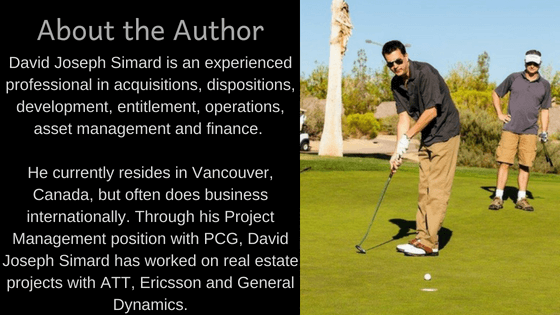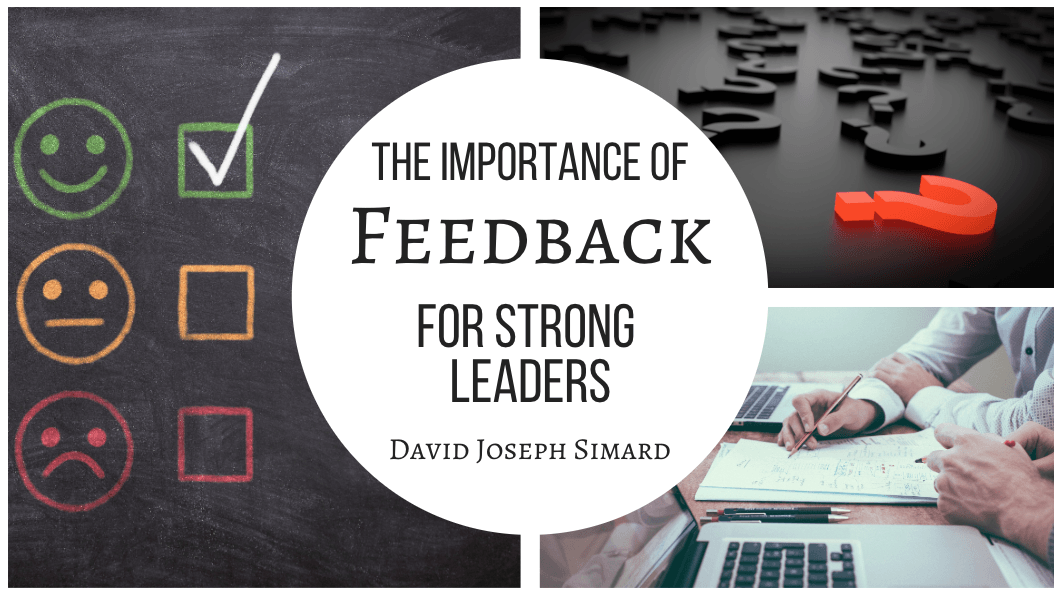
Fostering A Positive Work Environment
It does not matter which industry you work in or the profession you are in, you spend the majority of your weekdays in a work setting. Some of us spend more time with our colleagues than we spend with our own families. Without work-life balance, our work environments can become a breeding ground for negative comments, rumors, and gossip. But how does a business create a positive work environment?
The benefits of a positive work environment can help employees grow and become significant assets to their company. Any business owner and leader know that the following suggestions can help them build a work environment where their team can thrive!
Safety
There is nothing more damaging in a professional environment than toxicity. Not only does it stifle new ideas, but it inhibits collaboration between coworkers and individuals higher up in the company. A safe work environment allows for collaboration and helps eliminate negative personalities. Safe environments are also lead with honesty and integrity and help your employees feel like they are a valued member of the team and make them feel secure.
Consistency
Company culture is being shaped by new trends like flex hours, team building, unlimited paid time off, pet policies, and open workspaces. But while it’s easy to be tempted by all of these great perks, it’s also essential to keep things consistent within the office. A lot of companies tend to replicate what their competitors are doing, but what works for one company might not work at another. Change can be healthy, but changing a good thing can be detrimental and shift the cultural balance of your company.
Positive Thinking
Nothing kills a positive work environment more than negative thinking. It’s important to encourage any team to think positively and as a leader, be the biggest supporter of positivity. Without a connection to your employees, the mission and company values can quickly be misinterpreted and lead to rumors and gossip. Remember, the more honest and transparent you can be with your employees, the quicker you can dilute anything negative that may arise.
If you are willing to take the time to build a positive work environment, the dividends will pay off over time. Your employees will be happier, and happier employees want to stick with a company for the long term!


Best Email Practices for Leaders
Communication is regarded as one of the most important skills an effective leader can have. This proficiency in communication extends beyond face-to-face conversations, phone calls, and presentations. Though the above examples certainly require excellent communication skills, leaders must also strive to uphold their same prowess when it comes to email correspondence.
Preparation
It can be easy to think of email as a step up from text messages, but email should not be used as a means to convey information quickly. Instead, leaders should be careful and thoughtful when deciding what to write in their emails. Before writing anything, consider not only what you want to say but also your intentions in sharing this information and your expectations for your recipients’ reactions.
If the information could be more effectively communicated in person or over a phone call, choosing one of those options will limit the potential for misunderstandings and improve relationships.
Deliberate Choices
Emails make communication simple and quick, but this feature has become somewhat overused. Rather than rushing to write an email and sending it upon finishing it, leaders should take time to read over their message. You want to make sure your message is clear, concise, and deliberate. Additionally, your message should be as straightforward and simple as it can be; this applies to the subject line, as well.
Rather than opt for a vague, generic subject line, choosing a specific title that references the specific contents of your email will be more valuable and recognizable to recipients. Understanding how individuals view, read, and organize their inboxes based on priority or importance can help you recognize the need for specificity in your emails.
Directness
When leaders email other members of their business, external partners, or clients, it is important that they do not leave their own intentions a mystery. Asking explicit questions, prompting a response, or establishing a time to discuss a topic in person shows your recipients that you are organized and actionable.
Brevity also plays a part in this matter. If it takes you half an hour to draft an email or your email exceeds a few brief paragraphs, you may be better off speaking to your recipient in a more direct manner. Use emails to convey information that is brief, easily understood, and non-urgent. Understanding this will help you improve the contents of your emails and increase readership.
Mastering the art of email can be challenging, even for experienced leaders. Even so, it is an essential component of modern leadership that should be a priority for all leaders.


The Importance of Feedback for Strong Leaders
Strong leaders display many positive attributes. Some people might be surprised to learn that one such trait is an individual’s ability to both give and receive feedback, both positive and negative.
Here are several methods for effective managers to offer and receive feedback.
Render Feedback At The Appropriate Times
Efficient and respected leaders understand the importance of offering feedback at the proper times. In most instances, criticism should be reserved for private, one-on-one sessions between manager and employee. That said, mild, constructive criticism or staff-based critiques can be executed in a public manner provided said actions are executed politely and professionally. Experienced leaders suggest that praise is best carried out publicly.
Enable Feedback As A Trust-Building Activity
Solid leaders will not shy away from asking for feedback from their staff members. Said interaction often builds a level of trust between employer and employees. Additionally, allowing workers to offer suggestions regarding various work-related issues can make those individuals feel more invested in the entity’s operations and more motivated to perform at an optimal level.
Avoid Giving Feedback During Extreme Moods
Employers are advised not to render any type of criticism while experiencing mood extremes, such as anger or joy. When a leader is angry or annoyed, they may express an overly critical attitude that is not necessarily related to an employee’s performance, but the manager’s current emotions. Conversely, praise should not be given when an employer is in a jovial frame of mind either. Such effuse praise might not be a true indication of the employee’s overall performance.
Give Employees Time To Prepare
Effective managers will not dump a heap of criticism on an employee out of the blue. Executing such actions may fluster a subordinate, leading to an adverse impact on their job performance. Experienced managers agree that it’s usually best to give employees time to prepare for a critique session by making an appointment to meet and informing the individual that the discussion will be in reference to their job performance. This should be a conversation where a manager can also acquire feedback from the employee.
Do Not Avoid The Inevitable
Some managers avoid offering feedback because the process of rendering such information can be difficult and uncomfortable. That said, those who hold and maintain executive positions understand that the feedback process is often necessary to help an employee maximize their utmost potential for both professional development and overall success of the company. Feedback is only helpful if it can be acted upon, therefore time is of the essence so corrective measure can be taken.
Be Honest
As challenging as accepting the necessity of the feedback process may be, rendering honest assessments of an employee’s performance can be even more difficult. However, effective leaders understand honesty is the best (and only) policy when it comes to fostering an employee’s path to improvement and enhancing the overall position of the company or entity.

About David Joseph Simard
David Joseph Simard is currently a private real estate development and construction consultant based out of Vancouver, British Columbia, one of Canada’s most desirable housing and commercial real estate markets. While paving an unconventional path to his successful career in real estate, Simard has found ways to incorporate his varied experience and education throughout each new project. In addition to the success he’s seen with his own consulting business, David Joseph Simard has also found ways to use his expertise to give back to various public and non-profit organizations. Some of these initiatives include an appointment as the founding President of the Canada Nevada Business Counsel and his service to the Board of UNLV’s School of Business.
Before settling down in Vancouver, David Joseph Simard first found his enthusiasm for real estate and new construction development at the University of Windsor, in Windsor Ontario. Here, Simard studied both industrial psychology and history/international relations. This trend in multi-disciplined education would continue for Simard, as his path then took him down to East Lansing, Michigan. At Michigan State University, he would go on to receive two Bachelor of Arts degrees in both industrial psychology and history/international relations. Forever the proud Spartan, Simard moved ahead with his pursuit of acquiring a Juris Doctorate from MSU, recognized as the highest level of education available in the United States’ legal sector.

It was by total happenstance that David Joseph Simard found his first part-time job in real estate while still in school. This wouldn’t be considered the most relevant job for an international relations major. But, Simard found a fast affinity for his work as a real estate broker and later moved on to the next phase of his career, transitioning to real estate development. Simard didn’t realize at the time that he was beginning a career in the industry that would span nearly 30 years. His path eventually led to the international real estate industry and consulting Fortune 500 companies, keeping their multi-million dollar projects on time and under budget.
David Joseph Simard‘s current role finds him continuing his consulting services for global companies, some of which include General Dynamics, Ericsson, and AT&T. Simard’s varied expertise lends his consulting services in legal, financial, and business operations, while providing turnkey real estate project management solutions. Seeing a new construction project begin to take shape is what has kept Simard on this path. The capability to see a project to completion through all areas of a commercial and residential real estate development has enabled Simard to make his mark throughout the industry. When working with Simard, his clients have echoed the same positive experiences of having worked with a unique talent that can guide them through the full life cycle of a project and across all phases.
In addition to his other public service efforts, David Joseph Simard has also served the Boards of the Lied Institute for Real Estate, NDA, and NAIOP. When spending time outside of his professional path, Simard is a wine enthusiast that you may likely find attending a wine tasting at one of Vancouver’s fine vineyards. He also enjoys more strenuous outdoor activities like snowboarding, skiing, and hiking.
